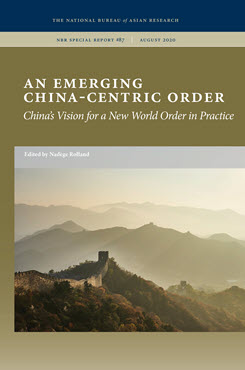NBR Special Report no. 87
China at the UN Human Rights Council
Conjuring a “Community of Shared Future for Humankind”?
This essay examines China’s engagement with the UN Human Rights Council (HRC) and the methods and tactics the party-state is using to undermine the current international human rights system and implement its vision of a new world order.
Executive Summary
MAIN ARGUMENT
Since 2017, the Chinese government has taken increasingly aggressive steps at the HRC to challenge the current international human rights framework. Its actions signal that the new world order it envisions will not include “so-called” Western universal values, such as individual civil and political rights, but be based on rights that are, in China’s view, more germane to the developing world, namely the right to development. Through the use of economic leverage, threats, intimidation, inducements, the mobilization of networks, and skillful manipulation of procedures, China has obtained increasing levels of institutional and discourse power at the HRC and now has the votes and support to implement its affirmative agenda. Its vision for the HRC and new preferred world order are one and the same: a “community of shared future for humankind” with China’s norms, values, and discourse at the center; where “win-win cooperation” means that governments can avoid scrutiny and escape accountability for human rights abuses and victims are unable to find redress for their grievances. China is making steady progress in implementing this vision, but not without some pushback.
POLICY IMPLICATIONS
- Without a strong coalition of liberal democracies working together with like-minded countries in different regions, China will eventually take over the HRC and complete its project of redefining rights and reshaping the human rights mechanisms to serve its own interest in implementing an illiberal world order.
- The HRC is a critical venue where the battle between the liberal international order and China’s high-tech authoritarianism is being played out. If the U.S. does not rejoin the HRC and vigorously defend human rights and the UN mechanisms, China—and the dystopian “community of shared future” it is creating—will prevail.
- The U.S. and other democracies need an appealing platform for partnerships with countries in the global South, which would take shape both domestically and multilaterally, such as at the HRC. The UN’s human rights–based 2030 Agenda for Sustainable Development would be an ideal place to start, and this initiative connects back to the work of the HRC.
Andréa Worden is a Lecturer and William S. Reinsch Practitioner-Instructor in the Program for East Asian Studies at the Johns Hopkins Krieger School of Arts and Sciences.



